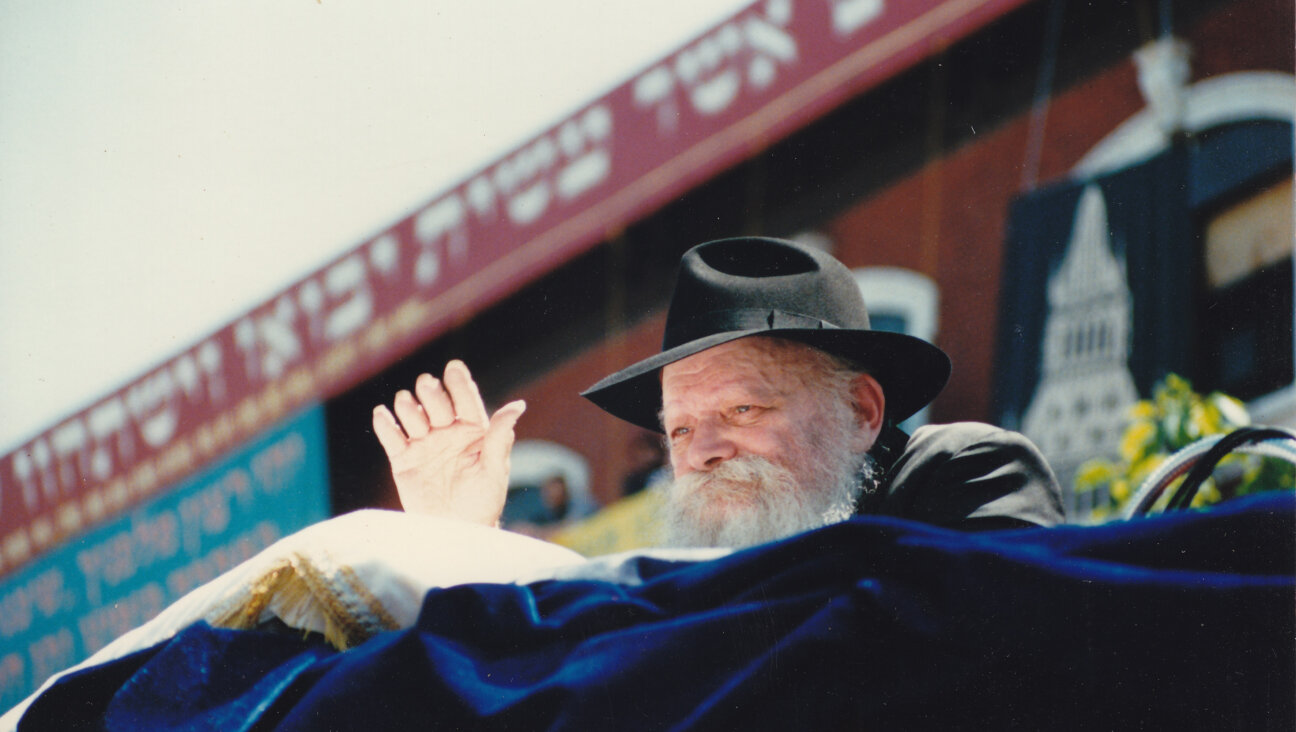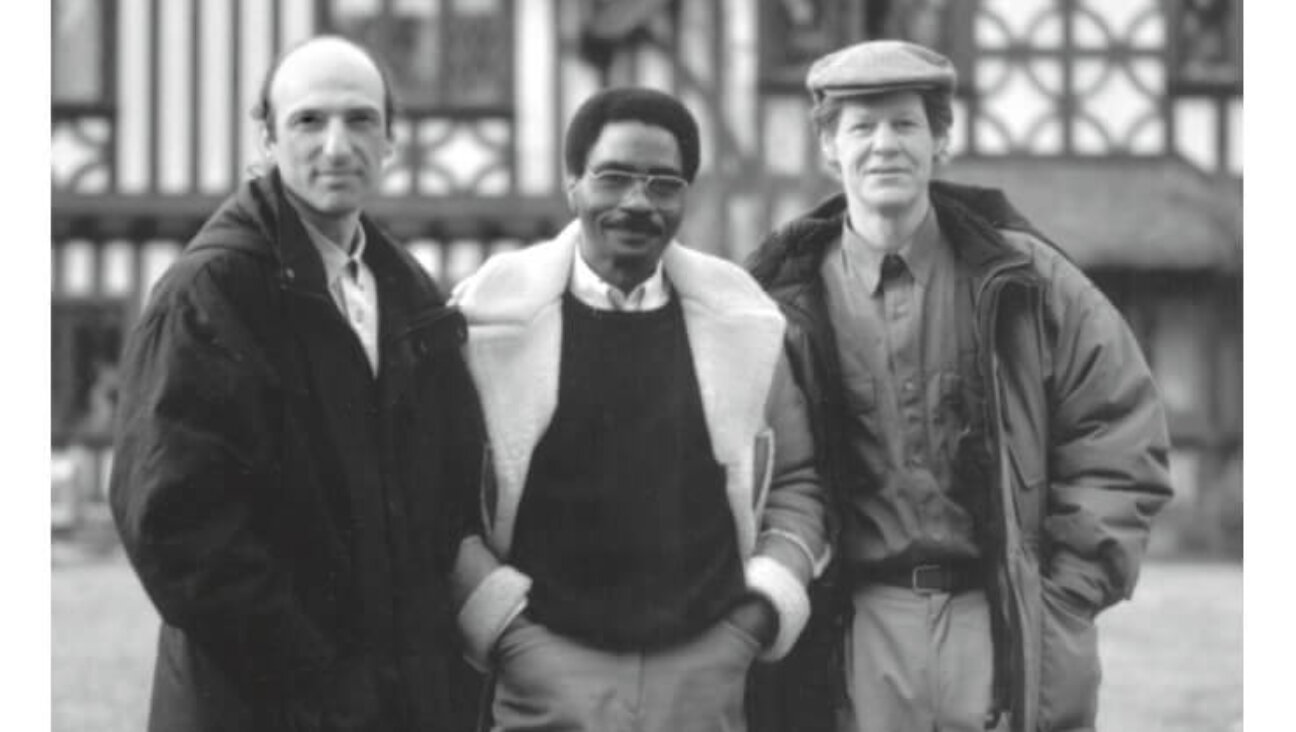June 25, 2004
Higher Standards Not Matched by Recognition
Phrasing used in a June 11 article on the Sudan — specifically, the statements that “after months of inaction [Jewish groups are finally making an effort to help]” and that “Jewish organizations… [failed] to do enough to stop the 1994 genocide that took place in Rwanda” — demonstrate the Jewish tendency for self-flagellation (“Jewish Groups Step Up Efforts To Help Sudanese”).
I am proud that Tikkun Olam, or repairing the world, is an important principle of Judaism. But to imply that Jews have a dominant responsibility to perform this commendable task in the Sudan and Rwanda is a bit of a stretch.
Are the Jewish people, representing an extraordinarily tiny portion of the world’s population, so important that we have to undertake functions that the United Nations, the giant industrialized nations and fellow African countries should be obliged to undertake? This attitude could be interpreted as a Jewish sense of superiority, just as much as an inherent penchant for charitable actions.
Nongovernmental organizations certainly have a role to play in tragedies like Sudan and Rwanda. But what is the Council on American-Islamic Relations, which claims to represent millions of American Muslims, and Louis Farrakhan’s Nation of Islam, doing to help the Sudanese Muslims? And what are African-American organizations doing to defend the continent’s black population against genocidal onslaughts by Arabs in Sudan, Mali, Chad, Mauritania and other sub-Sahara nations?
Perhaps I am just a geriatric cynic who has lived through the indifference of the non-Jewish world toward Jewish suffering over the past century. But I am weary belonging to a people who are supposed to provide a moral light to the world when other nations do not appear to care or be impressed by our good deeds.
Mort Reichek
Monroe Township, N.J.
Columnist Draws a Fein Line on Israel Advocacy
Columnist Leonard Fein’s June 11 opinion article finds him needlessly in a deep depression (“A Coalition of the Eager”). Although a self-professed avid reader, he seems to have not caught up to recent news.
Surely, he will be cheered to know about the worldwide acceptance and praise for Prime Minister Sharon’s unilateral plan for withdrawing from Gaza, which, at least for the moment, has restored some of Israel’s moral standing — the loss of which is one cause of Fein’s deep funk. The absence of enthusiasm for the plan from evangelical Christians, a consistent object of derision by Fein, should also bring him some cheer.
There have been no successful suicide attacks in Israel during the last three months. Even though this turn of events is totally contrary to Fein’s many earlier predictions, he should be cheered by these developments. Perhaps knowing that the separation fence, even though incomplete, is already saving Jewish lives will assuage Fein’s distress over the inconvenience it causes to some Arabs.
Finally, although not news, Fein might feel better knowing — despite the unremitting drumbeat from his dear friends at the New Israel Fund decrying Israel’s treatment of its Arab citizens — that many, if not most, Israeli Arabs consider themselves to be the luckiest Arabs in the world.
Robert Lappin
Swampscott, Mass.
I was glad to read Leonard Fein’s June 11 opinion column and could not agree more with his views. Jews who “swallow” their misgivings about what is happening in Israel or try to justify Israel’s actions are wearing blinders.
As long as those of us who do care deeply about Israel keep “sulking and swallowing,” as long as we continue to be intimidated by those in the “establishment” Jewish community who try to silence our criticism, as long as we continue in the folly of justifying what is unjustifiable, we will cede to the non-Jewish community the only moral ground left to us — that of speaking out against the actions perpetrated by the Israeli government in our name.
Through our dissent, through our insistence that Israel change its “ill-conceived and ill-executed policies,” we can and should be the “ardent defenders” of the Zionist dream, not the defensive bystanders who watch in silence as non-Jews from all over the world say the things that we should be saying.
Thank you, Leonard Fein, for articulating this issue so eloquently. As you have urged, let’s do better. Much better.
Stephanie Schamess
Williamsburg, Mass.
People of the Book, Not Nation of Jews
Philologos is on the mark with his June 11 On Language column (“‘Peoplehood’ From the Jews?”). Mordecai M. Kaplan, the founder of Reconstructionist Judaism, published “Judaism as a Civilization” in 1934. In that book, he spoke often of Jewish nationhood. In the foreword to the 1957 reprinting, Kaplan reflects upon a request he received for a reprinting in the late 1930s. He denied the request at that time because, among other reasons, “the concept ‘nationhood,’ as applied to the Jews, had come to be closely identified with statehood and was, therefore, in need of being replaced by the concept ‘peoplehood.’”
I believe, though I can’t prove, that Kaplan actually invented the term. The first use of “peoplehood” with which I am familiar is by Kaplan in the November 27, 1942, issue of “The Reconstructionist.” In Kaplan’s “The Future of the American Jew,” published in 1947, the concept of peoplehood is fully discussed and defined.
Rabbi Dan Ehrenkrantz
President, Reconstructionist Rabbinical College
Wyncote, Pa.
Has Philologos overlooked a point or two in his discussion of peoplehood? Doesn’t the Jewish peoplehood concept, at least today, draw its primary meaning from the geographic dispersion of Jews across nations, rather than from a commonality of Torah observance? Surely, the peoplehood word today encompasses the millions of secular Jews, many of whom are hardly or not observant, let alone affiliated, and many of whom reject metaphysical thinking.
Nevertheless, they still regard themselves, and are regarded by others, as Jews because of birth and upbringing; because of an emotional identification as part of the world’s Jewish community; and because of a presumed adherence to presumed Jewish values, ethics and morality.
And as far as ethnicity is concerned, can’t many Jews be characterized by varying ethnic descriptions so that the ethnicities are but subsets of the peoplehood?
Sheldon Schaffer
Birmingham, Ala.
Remembering Reagan
Marshall Breger’s “Appreciation” piece on Ronald Reagan could have just as well been titled a shande, particularly the former Reagan apparatchik’s twisted apologia for the president’s trip to Bitburg, a cemetery infested with S.S. gravestones (“Reagan: Big Steps Altered Jewish Politics”).
That trip, urged upon Reagan by Patrick Buchanan and warned against by Elie Wiesel, was unforgivable and cannot be explained away by a convoluted essay on foreign policy that strains to make it seem that the visit to Bitburg led in some mysterious way to the downfall of communism. My memory is that Wiesel told Reagan his place was not among the graves of those who destroyed one-third of the world’s Jews.
Reagan, an affable and persuasive public figure, was the voice that sang the siren song of a movement to the right that started and continues to destroy much that had been kind and compassionate in America, and that marked this democracy as worthy of serving as a role model. The real shame is the number of Jewish intelligentsia and leaders who followed that song of enriching the rich, destroying the union movement, detesting the poor, deconstructing much of the civil rights movement, building an American empire, trampling on church-state separation, and removing citizen protections from grasping corporations and militaristic government interventions.
Berger closes his eulogy for Reagan with the words: “The reasons for not canceling the meeting [at Bitburg] become clearer in the light of history.”
So, too, do the compelling and moral reasons why the meeting never should have taken place in that cursed square of ground.
Norman Abelson
Moody, Maine
The June 11 editorial on the passing of Ronald Reagan was a much more balanced appraisal of his presidency than all the posthumous reporting and commentary I have seen or heard on the subject (“Reagan”).
But I waited in vain for some reference to Reagan’s failure to address the nation’s affliction with gun violence. Gunfire in an attempted assassination nearly cost him his life and permanently disable his first press secretary. With the additional leverage resulting from this extraordinary experience, he could and should have sought firearms legislation fully responsive to the imperatives of public safety.
It wasn’t until about five years after his tenure as president that he announced support for the Brady handgun-control bill, a bill named after his first press secretary that was originally introduced during his second term. Reagan’s passionate espousal of smaller, more-limited government was no excuse for his failure as president to address the problem of gun violence.
David Steinberg
Alexandria Va.
A message from our CEO & publisher Rachel Fishman Feddersen

I hope you appreciated this article. Before you go, I’d like to ask you to please support the Forward’s award-winning, nonprofit journalism during this critical time.
We’ve set a goal to raise $260,000 by December 31. That’s an ambitious goal, but one that will give us the resources we need to invest in the high quality news, opinion, analysis and cultural coverage that isn’t available anywhere else.
If you feel inspired to make an impact, now is the time to give something back. Join us as a member at your most generous level.
— Rachel Fishman Feddersen, Publisher and CEO























